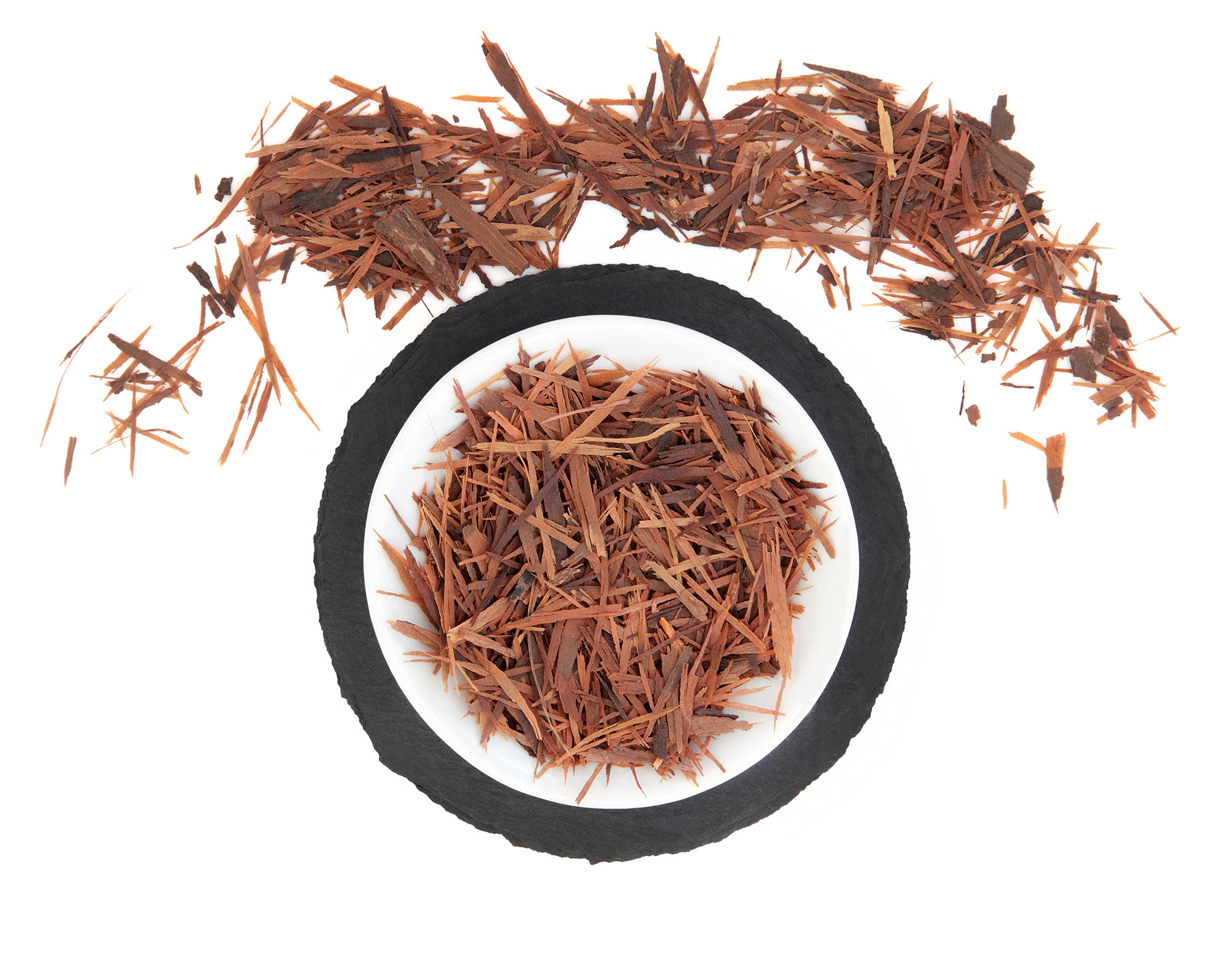The Health Benefits of Pau d’Arco
Health | January 12, 2019

Nature has always been the original medicine cabinet. Before modern drugs and remedies there were plants; an assortment of herbs and roots were used to treat virtually every ailment under the sun. While there’s no denying the life-changing benefits of conventional medicine, sometimes a little help from nature can make a big difference.
Be Careful:
I must point out before continuing forth that no herb on the planet should replace the advice of a doctor, so take all of this with a grain of salt. If you do choose to take Pau d’Arco, discuss it with your provider beforehand to prevent you from harming yourself!
A South American Wonder
Pau d’Arco, a plant native to South America, has been used medicinally for many years, with reports dating as early as 1873. [1] In Portuguese it’s name translates to “bow stick”. Out in the wild, it can grow up 125 feet tall; it is described as an evergreen tree with rose-colored flowers. Up to 100 different species have been identified, with only a select few sporting effective, quality material. The inner bark, known as the phloem, is applied as medicine, helping to treat a number of conditions. [2] Today, it can be found in the form of tablets, tinctures, and tea.
Pau d’Arco contains two active chemicals- napthoquinones and beta-lapachone-, which have been studied extensively by scientists. Lab tests have shown their ability to kill bacteria, fungi, viruses, and parasites. In theory, it would make a useful addition to the treatment of things like candida (yeast infection) and influenza. [3]
In addition to these effects, Pau d’Arco also acts as an anti-inflammatory due to its source of the antioxidant quercetin. Quercetin, which is also found in foods like onion, asparagus, green pepper, tomatoes, and red leaf lettuce, has been shown to be a powerful anti-inflammatory agent, making it a wonderful aspect of Pau d’Arco. [4]
Pau d’Arco has also been shown to help heal ulcers, at least in rats. According to a 2013 study published in Phytotherapy Research, it was found that Pau d’Arco extract helped to significantly heal the ulcer-plagued rats. [5]
Finally, Pau d’Arco may also help the body to detox due to its laxative characteristics. This stimulates the digestive system, supporting regular, loose bowels. [6]
With all of these benefits in mind, remember once again that we still don’t have enough research to confirm them. Please once again consult with a licensed herbalist or doctor before treating any disease or condition with Pau d’Arco!
Sources:
[1] nesini C, Perez C. Screening of plants used in Argentine folk medicine for antimicrobial activity. J Ethnopharmacol. 1993;39:119-128.
[2] https://draxe.com/pau-darco-tea/
[3] http://www.ucdenver.edu/academics/colleges/pharmacy/currentstudents/OnCampusPharmDStudents/ExperientialProgram/Documents/nutr_monographs/Monograph-pau_darco.pdf
[4] https://www.ncbi.nlm.nih.gov/pmc/articles/PMC4425148/
[5] https://www.ncbi.nlm.nih.gov/pubmed/22969019
[6] http://www.herballegacy.com/Maiden_Medicinal.html














Comments Add Comment
Add a Comment